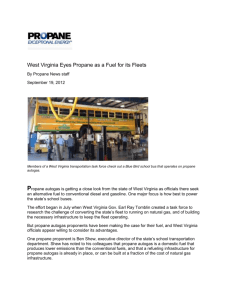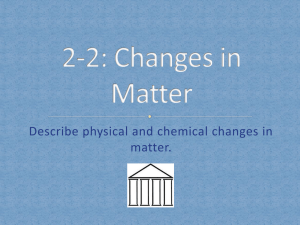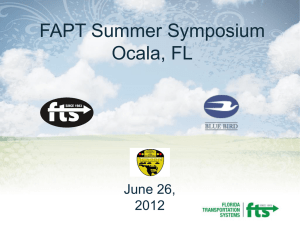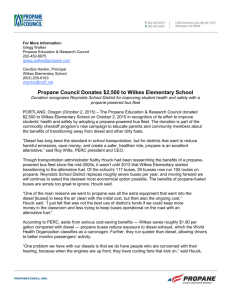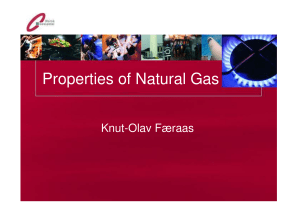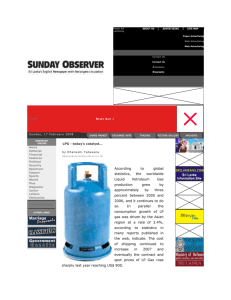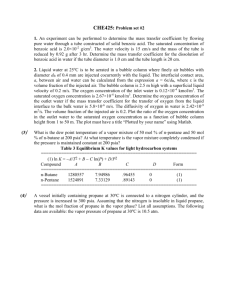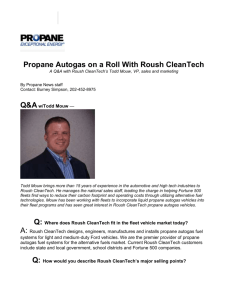Propane Education & Research Council
advertisement
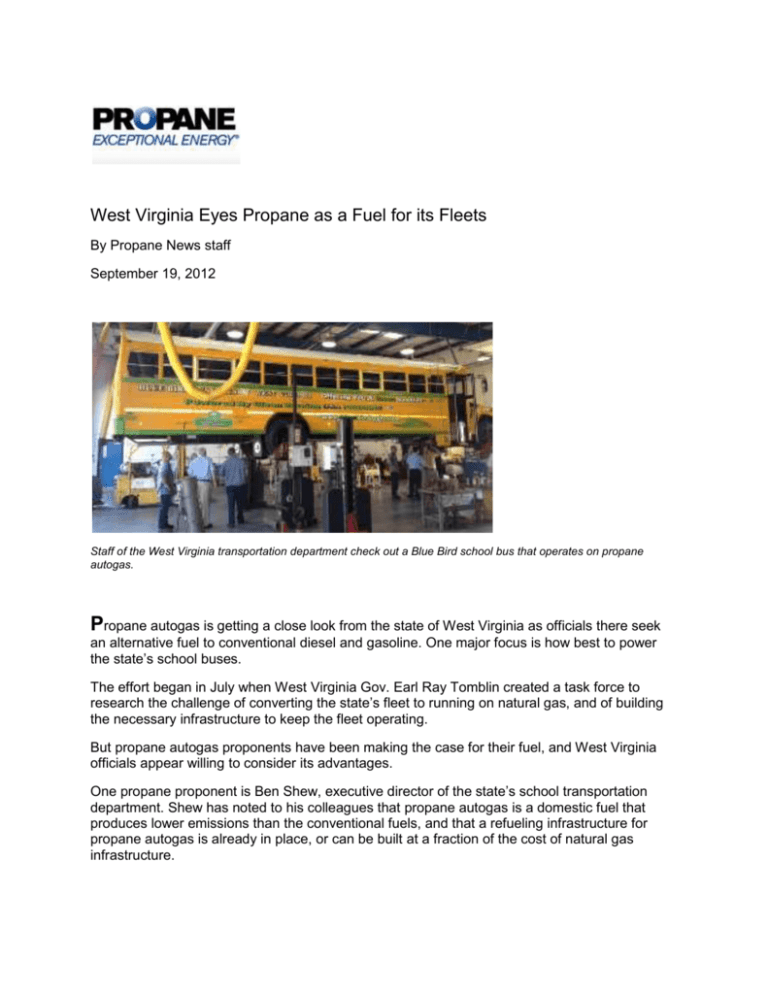
West Virginia Eyes Propane as a Fuel for its Fleets By Propane News staff September 19, 2012 Staff of the West Virginia transportation department check out a Blue Bird school bus that operates on propane autogas. Propane autogas is getting a close look from the state of West Virginia as officials there seek an alternative fuel to conventional diesel and gasoline. One major focus is how best to power the state’s school buses. The effort began in July when West Virginia Gov. Earl Ray Tomblin created a task force to research the challenge of converting the state’s fleet to running on natural gas, and of building the necessary infrastructure to keep the fleet operating. But propane autogas proponents have been making the case for their fuel, and West Virginia officials appear willing to consider its advantages. One propane proponent is Ben Shew, executive director of the state’s school transportation department. Shew has noted to his colleagues that propane autogas is a domestic fuel that produces lower emissions than the conventional fuels, and that a refueling infrastructure for propane autogas is already in place, or can be built at a fraction of the cost of natural gas infrastructure. Shew took part in a school bus ride-and-drive and question-and-answer session with representatives from Blue Bird, the manufacturer of the Vision propane-autogas-fueled school bus. Mark Schmitt, president of Blue Bird Bus Sales for West Virginia, along with executives Jeff Pschirer and Jim Titus, organized the demo that included a ride on a narrow, winding mountain road, just like the ones that many West Virginia students take to school. Shew was impressed with the power of the buses’ Roush CleanTech 6.8-liter engine and their ability to maneuver the road and he shared his views with other state executives. David Ziegler, transportation director for Ohio Co. schools, was positive on other propane autogas attributes. “From what I’ve looked at, propane is cheaper than diesel fuel,” Ziegler told the West Virginia Intelligencer newspaper. “We would still be using an alternative fuel and getting away from foreign oil.” Nearly 90 percent of U.S. propane supplies are produced in the United States. It is a byproduct of natural gas processing and petroleum refining. West Virginia may be best known as a coal state but it is also a producer of natural gas, sitting atop a portion of the Marcellus Shale. “It would be pretty neat to run our school buses on propane made in West Virginia at half the cost,” Tomblin told the Intelligencer. “And they appear to run quiet and clean. I was also surprised at how well it rode the terrain.” Propane is also a cleaner burning fuel. Vehicles that run on propane autogas emit about 12 percent less carbon dioxide, about 20 percent less nitrogen oxide, and up to 60 percent less carbon monoxide than vehicles that run on gasoline. For its part, West Virginia has about 38,000 school buses, and it spends about $23 million annually just replacing old and worn out buses, the Intelligencer reported. Another expense the task force must consider is providing the infrastructure to refuel the buses and other vehicles. Experts say a propane autogas refueling station can cost less than $50,000, or about half that of installing an on-site gasoline or diesel refueling station. In comparison, a natural gas refueling station can cost as much as 10 times as much as a comparable propane autogas station. The West Virginia task force plans to hold a number of hearings around the state on the right mix of fuels for its state fleet. ## 30 ##
